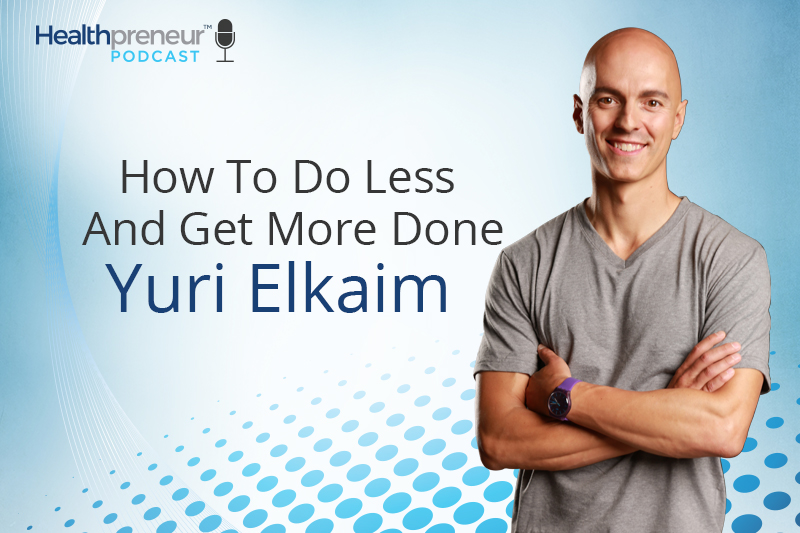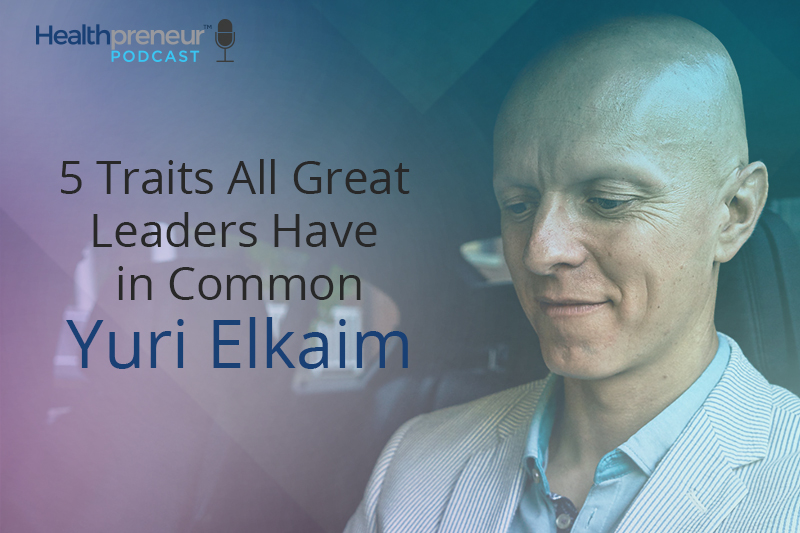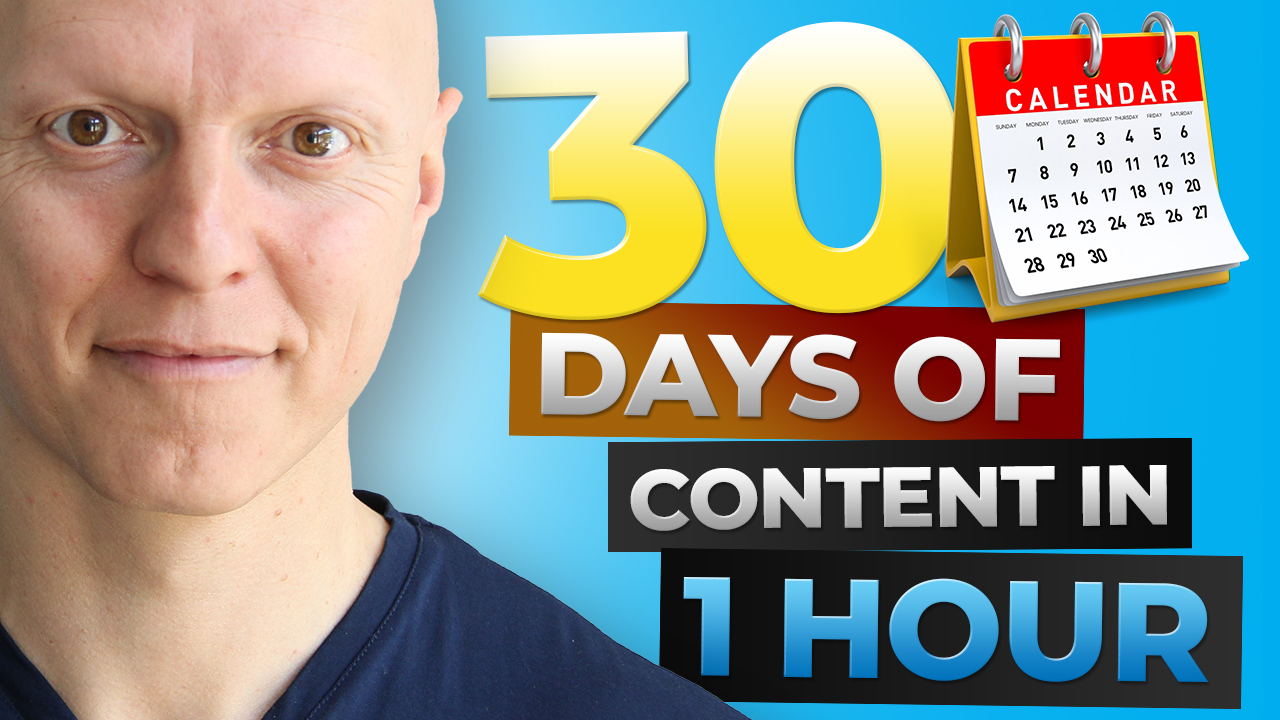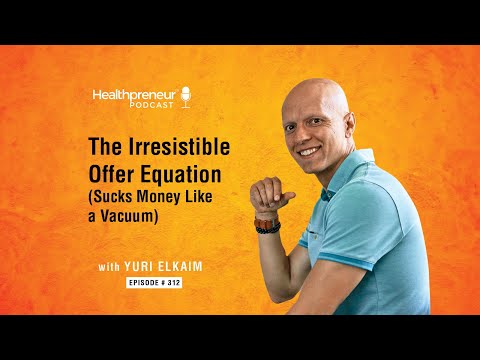Why Comparison Will Kill Your Business
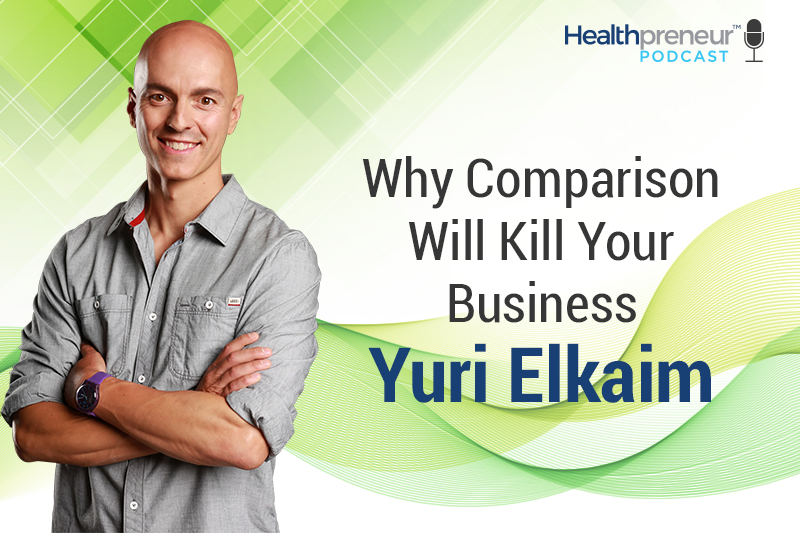
Today for our solo round on the Healthpreneur Podcast I’m going to be talking about why comparison will kill your business. We’ve all done it. In business, and in life, it’s easy to compare ourselves, our journey, our business, our product, and our prices to others. But that’s a waste of time. No one is doing YOU like you are, and no one is offering what you are, either. It’s time to reclaim and recognize our magic.
I’m going to talk about how you can make your way to the top. Hint: It takes mindset and a brand that is truly set apart from the rest. Comparison breeds self-doubt, uncertainty, and mediocrity, and until you let go of that, you’ll be stuck playing at the bottom with the rest. Today I’ll discuss how to let go of comparison to propel yourself to the top where you belong.
In this episode I discuss:
1:30 – 4:00 – Example of comparison and why it’s dangerous for business
4:00 – 6:00 – The mountain analogy: Why play at the bottom?
6:00 – 10:00 – Pricing, looking for proof, and owning the magic you possess
10:00 – 11:00 – Introspection, self-confidence, and believing in yourself
11:00 – 13:30 – Comparison is a waste of time
13:30 – 15:00 – Beloved Crystals and Yuri’s wife; realizing her product is worth more
Transcription
In today’s episode, I’m going to tell you why comparison will kill your business. I want to share a little story with you to give you some context.
Example of comparison and why it’s dangerous for business
My wife is awesome, naturally. She’s driven and runs an amazing business on Etsy. If you want to check it out, it’s called Beloved Crystals. and she makes amazing bracelets using healing crystals and gemstones. It’s very tough for a spouse to give another spouse business advice, so I don’t do it very often, only when she asks. If you’ve got a spouse, you probably know what I’m talking about.
My wife and I are very much alike. We’re not very complimentary in the sense of working together. She’s had this amazing business on Etsy for two years, and she’s got 7,000+ sales and around 1,800 five-star reviews.
One of the things that I’ve told her before is this: “You put so much love and care into creating these bracelets. Why are you comparing your prices, and what you do, to other bracelet companies on Etsy or elsewhere?”
And it’s not just her. Everyone does this, and it’s a problem. When you compare yourself to anyone else, you automatically become a commodity, if you implement based on what you’re looking at. There’s a distinction here.
There is looking at what other people are doing to see what’s working and what isn’t. But on the flip side, which is not as healthy, is, “Man, they’re selling these bracelets for $35 dollars. My bracelets need to be $35 dollars as well.”
I’ve seen this game played in a very big way, especially when it comes to information products. Everyone sells their thing for the same price, using the same technology.
They’re using the same platforms, and everyone is the same. That’s a problem. If you are doing that, you will suffer if you continue. Now, there’s very little room at the top of the mountain. Let’s use that analogy here, okay?
The mountain analogy: Why play at the bottom?
Let’s say we’re climbing Mt. Everest. At base camp, or ground zero, there’s a lot of people, right? There’s a lot of people who say, “Yeah. Let’s do this, we’ve got the Sherpa, tents, camps, and everything ready to go.” Let’s just say there are a thousand people ready to scale the mountain.
So, all thousand people, look at each other thinking, “We can do this, we’re all the same.” They get up to Base Camp One, which, let’s say, is at 10,000 feet. Now, some people are starting to feel the effects of altitude sickness and some people don’t have the level of fitness or aerobic capacity to continue.
Let’s say half the people drop off. Now 500 people are left and they’re going to make their way up to Base Camp Two. Suddenly, when they hit Base Camp Two at 18,000 feet, let’s say, people are starting to feel it. Some people have bloody noses and aren’t feeling good. Some people are throwing up and have constant headaches.
Half the tribe drops off again. There’s only 250 people left. They’re going to continue up to Base Camp Three, let’s call that 25,000 feet, and now we’re getting into the Dead Zone, where there’s almost no oxygen. The true survival of the fittest comes into play. Some people don’t know if it’s worth it and don’t want to put their health or life in jeopardy. They back down.
And so, out of the 250 people, only 20 continue. And those 20 people make it to the summit.
We started with a thousand people at the bottom, and only 20 people made it to the top. The point of the story is that there’s always less room, less competition, at the top of the mountain. So why would you decide to play at the bottom?
Pricing, looking for proof, and owning the magic you possess
We’ve talked about pricing on episode 72, “How to Charge Premium Prices, Even if You’re Not a Guru” a few weeks ago. The thing about pricing is this: You either become the cheapest or the most expensive. If you’re anywhere in between, you’re a commodity.
I call that the dead zone. So, either you become the Walmart or the Costco, or you become the Rolls Royce.
I don’t recommend becoming the Walmart. When you price things very inexpensively, you need a massive amount of volume for it to make sense. To have a massive amount of volume with very small margins, you must become maniacal about data and tracking, and you have no wiggle room.
That’s not a lot of fun to operate. That’s where most people online are when they sell $10 ebooks and try to upsell you to increase their average cart value from like $19 to $21 just so they can take those two dollars of profit and hopefully build something out of that. That’s fine. That’s where I lived for way too long.
The better option, I believe, is to just focus on the flip side, which is going high and going premium. Charge more, offer a better service, produce a better result for your clients, and do not compare yourself to what other people are doing. That’ll limit your creativity. It’ll limit what you think is possible.
Introspection, self-confidence, and believing in yourself
When it comes to pricing or anything new, the biggest objection we have is, “Well, I don’t know if this will work for me, because I want to see it before I believe it.” That is the wrong approach to take with anything in life. If you’re asking yourself, “Well, I need to see the proof before I believe this can work,” guess what? That’s never going to happen. You’re not going to see anything you want to see.
As entrepreneurs, what we do is take things that don’t exist and bring them into physical form. We take an idea and create something out of it like a product, service, or program. That is the genius that we have as entrepreneurs.
You must believe that you have magic. We’re turning that magic into something tangible. But if we’re always looking for the proof before believing it, then naturally we’re going to compare ourselves to what other people are doing.
The same thing happened with Roger Bannister, the first person to break the four-minute mile. Before that, no one thought it was possible because it hadn’t been done. Roger Bannister believed he could do it, and he did. Within the next 12 months, I believe 13 other people broke the 4-minute mile.
It’s up to you whether you want to be the innovator and the believer, or if you want to wait until someone else does it, so you can follow their footsteps and become a follower instead of a leader. Think about it.
There are two reasons why we doubt anything in life.

One, we doubt ourselves or don’t have faith in the process, whether it’s business model or a specific process. We don’t believe it will work.
Two, we don’t believe we can make it work. You must go to work on yourself and build that belief. Build that delusional optimism, as I call it. Take calculated risk. The risk comes from believing in yourself. Do you think that Elon Musk believes in himself? Maybe a little bit.
If it weren’t for people like Steve Jobs, Elon Musk, Richard Branson, and thousands of other amazing entrepreneurs and business owners around the world, we probably wouldn’t be having this conversation. I probably would not be able to talk into this microphone because someone didn’t think it was possible.
I want to challenge you to go within, introspect, instead of compare.
Know, deep inside, that what you’re doing, or going to do, is right for you. It doesn’t matter if other people have succeeded or not with it. All that matters is that you know that you can make this happen.
Comparison is a waste of time
Let me give you a perfect example:
We’ve got an amazing workshop called the Health Business Accelerator. The only way we invite people to join us is by application or by going through our Perfect Client Pipeline, at which point, we jump on the phone with them.
One of the bigger objections is, “What’s the success rate of this? How do I know this is going to work for me?” That’s the wrong question to be asking. What that says is that you don’t believe in yourself.
We’ve laid out the game plan that works, we’ve stated the case and shown the proof. If you don’t feel that it’s going to work, that’s on you, not us. We’ve seen this work in our business, we’ve helped countless clients with the same process and it works.
Understand that self-doubt kills business. Self-doubt comes from not believing how good your product is and how amazing you are to transform someone’s life, and it also comes from comparison. Theodore Roosevelt said, “Comparison is the thief of joy.”
Here’s another great quote. Jon Acuff said, “Don’t compare your beginning to someone else’s middle.” You have no clue what someone else’s business looks like. When you’re comparing yourself to people on Instagram who have 400,000 subscribers, you might think that’s what you need to do to build your business.
That is an absolute waste of time. It’s not that some of them aren’t doing very well, but I can guarantee you this: The people you think are “crushing it” with their online business, aren’t.
I know a lot of these people very closely. They do eight figures in business revenue, but their profit is like 1%. That’s not very alluring. That’s not the type of business I want to run.
I don’t know if you want run that, but that doesn’t sound like a lot of fun to me, so be very careful when comparing yourself to other people and other business. You don’t know the true picture.
Don’t compare yourself to my business. Well, maybe compare yourself to The Healthpreneur, because it’s done properly. But in my health and fitness business, I’ve had so many people say, “Oh my god, dude. I love your stuff.” I say, “Hold on. You love my stuff? What does that mean? You love the type of business I built, why?”
I’ve put out some good content and some YouTube videos. I appreciate the kind words, but I don’t wish that type of business on you, because it’s so complex. There are so many moving parts, so many expenses beyond what even makes sense, and it’s not the type of business that I would ever want to run again.
That’s why, with Healthpreneur, we set things up properly from day one.
Please spend more time introspecting than comparing yourself to other people.
Beloved Crystals and Yuri’s wife; realizing her product is worth more
Going back to my wife’s bracelet business, a couple of days after we had the conversation she said, “Hey, guess what? I’ve just increased my prices.”
I challenged her to double her prices, and I was giving her countless examples of other similar bracelets that were charging two or three times as much. They’re mass production and they don’t put the love and care that she puts into her bracelets.
I told her one thing that stood out for her. She said, “You know, the one thing that really made sense to me was that you said I’ve got 7,000 sales and over 1,700 five-star reviews.” I responded, “Yeah. I think that’s enough proof that you need to increase your prices.”
You must believe in yourself. As Old Spice would say, “Believe in your smelf.” Please don’t compare yourself to other businesses. Don’t compare yourself to other people, because you are unique. You are the only you.
If you start comparing your prices and your stuff to what other people are doing, then guess what? You’ve just increased the level of competition in your market, and that’s not good. That’s not going to help you win, to climb to the top of the mountain.
Do the work, separate yourself, go premium, and be the best. Be the pinnacle of service that the clients who are looking for a solution will seek out.
No one wants mediocre results. No one wants to say, “It’s okay. That’s why it’s only 10 bucks.” People who are suffering with pain or problems want the solution. The faster and more certain, the better. That’s only going to come by looking within and creating something magical for your clients.
That is all for today’s episode. If you want help creating your magic or turning your magic into an amazing program that will serve clients at a deep level and give you the financial and time freedom you want, start off by joining our free training over at healthpreneurgroup.com/training.
I’ll walk you through The Seven-Figure Health Business Blueprint. It’s a terrific 75 minutes. I promise you it’ll be the best 75 minutes you’ve spent on your business in a while. Remember to subscribe to the podcast, if you have not done so already. Hit “Subscribe” so you don’t miss any upcoming episodes or solo sessions. I’ve got more great stuff coming your way.
Once again, thank you so much for taking the time to join me today. I’m signing off. Continue to go out there, be great, do great, and I’ll see you on our next episode on Wednesday.
If you enjoyed this episode, head on over to iTunes and subscribe to Healthpreneur™ Podcast if you haven’t done so already.
While you’re there, leave a rating and review. It really helps us out to reach more people because that is what we’re here to do.
What You Missed
In our last episode of the Healthpreneur Podcast, we dove into the mysterious world of subscription-based surprise-in-a-box business models with Scott McCulloch.
Scott McCulloch is the co-founder of The Vegan Kind, the largest vegan subscription box in the U.K., which he runs with his wife, Karris. With a background in business banking, a dangerous knack for Facebook and social media marketing, and a passion for change, Scott and his wife expanded The Vegan Kind at a rapid rate.
This is a great episode because Scott offers stark honesty about the growing pains, inner workings, and strategic choices they made along the way to grow a wildly successful and purposeful business. Best of all, they’ve done this while maintaining the personality and soul of their overall mission.
If you’re a Healthpreneur that wants insight on recurring-revenue business models, tips for lasting success, and outsourcing for sustaining growth, tune in right here.
Related posts
April 23, 2022
Create 30 Days Of Health Content In Just 1 HOUR! Here’s How
How do you create 30 days' worth…
January 26, 2020
The Irresistible Offer Equation (Sucks Money Like a Vacuum)
Today I want to talk with your…


